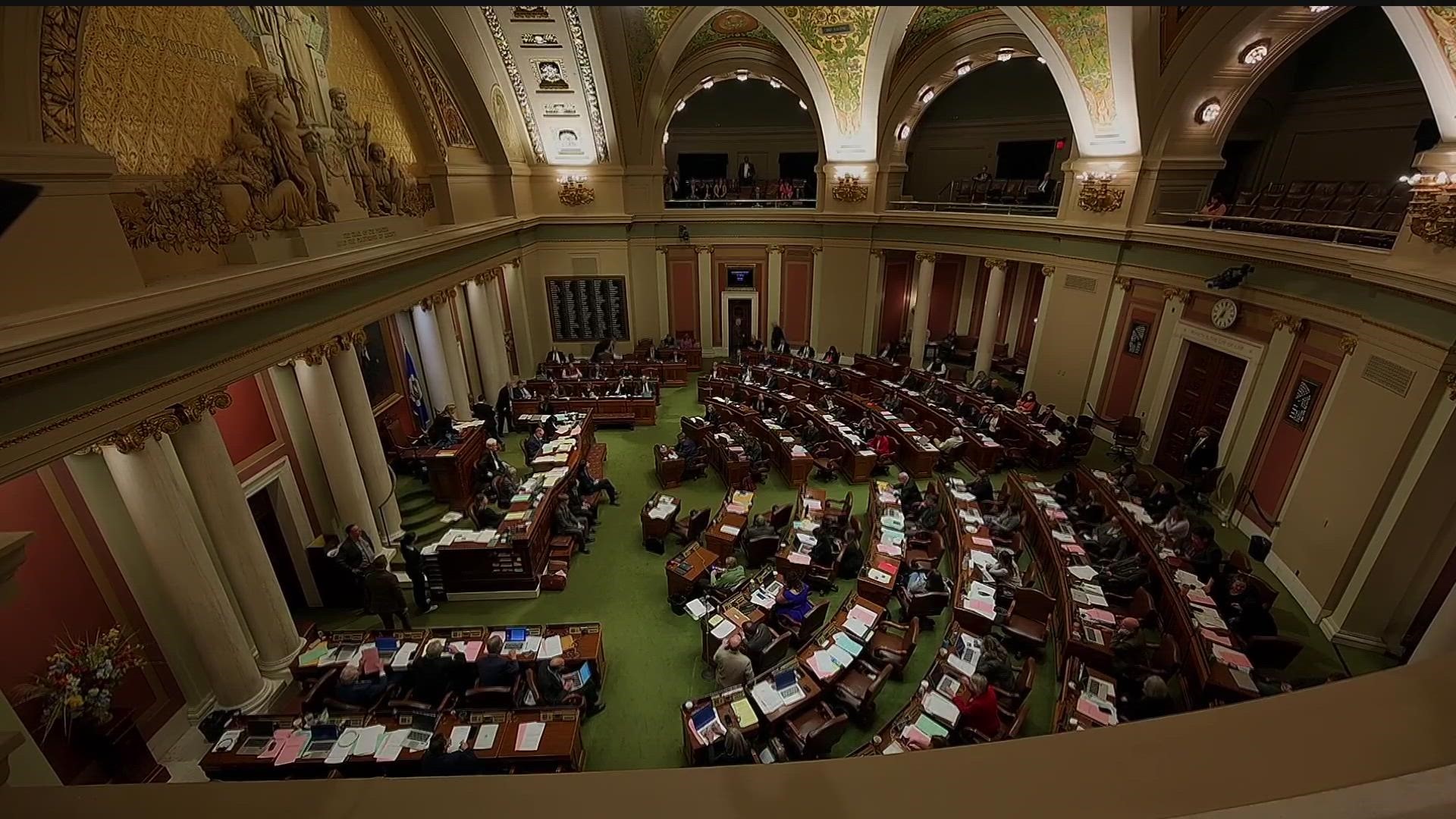ST PAUL, Minn. — After more than two hours of debate, the DFL-led Minnesota House of Representatives passed a measure Thursday night to provide universal school meals for all kids, overcoming opposition from Republicans who argued the measure costs too much and gives tax dollars to wealthy families and districts that don’t need the money.
The proposal will cost the state about $387 million over fiscal years 2024-25, according to estimates, but DFL leaders have said the measure will also save families anywhere from $800 to $1,000 per year on food bills. If approved by the Senate and signed by the governor, each student—regardless of their family’s income level—could receive free breakfast and lunch at school each day.
In Minnesota, an estimated one in six children report not having enough food to eat. However, one-quarter of those students experiencing food insecurity do not qualify for federal meal assistance because their families have too high of an income.
“In a state with an agricultural tradition as rich as ours, it is particularly unacceptable that any child go hungry,” said Rep. Sydney Jordan (DFL-Minneapolis), the bill author. “We know hunger is something too many students bring with them to their classrooms. And we know the current status quo is letting Minnesota school children go hungry.”
During the first two years of the pandemic, the federal government covered universal school meals for all students across the country. However, those waivers have since expired, and districts have returned to income-based federal meal eligibility. The DFL proposal that passed the House on Thursday would provide state money to essentially fill a gap between what the federal government covers.
On the House floor, several Republicans said they supported amendments to expand the income threshold for Minnesota students, so that struggling families who don’t qualify for federal meals can still get them. However, some members slammed the idea of universal school meals as “reckless spending.”
Rep. Peggy Bennett (R-Albert Lea) was among the Republicans who offered an amendment to expand eligibility – without going so far as to cover all income brackets.
“We all recognize there are some families that have been pushed into stressful situations, where students are not able to afford lunch, under the current eligibility factors,” Bennett said. “But members, paying for lunches for every student, kids that can afford it, families that can afford this, that doesn’t make sense. That’s not the answer. Money doesn’t grow on trees.”
The bill is currently churning through committee in the Senate.
Shortly after the House passed the measure, Gov. Tim Walz tweeted his support.
"It's time to provide universal school meals to make sure every kid can succeed," Walz said, "and that no child goes hungry. I'm ready to sign it into law."
Watch more local news:
Watch the latest local news from the Twin Cities in our YouTube playlist:

